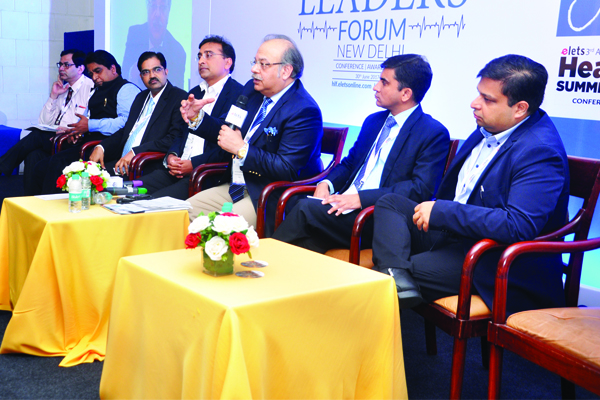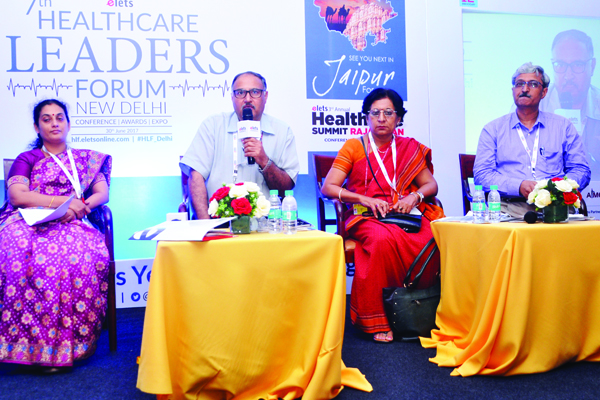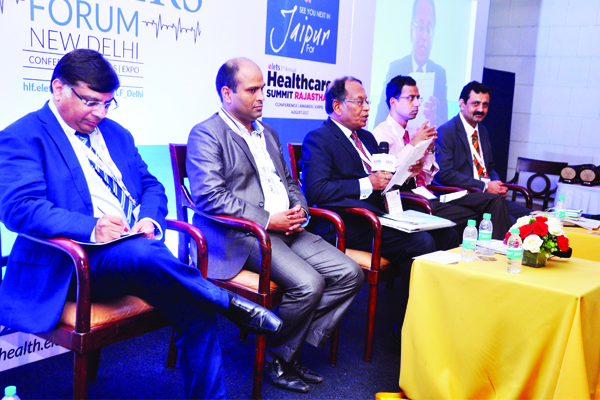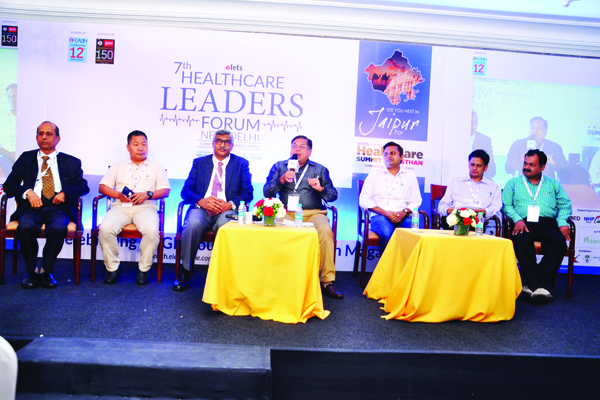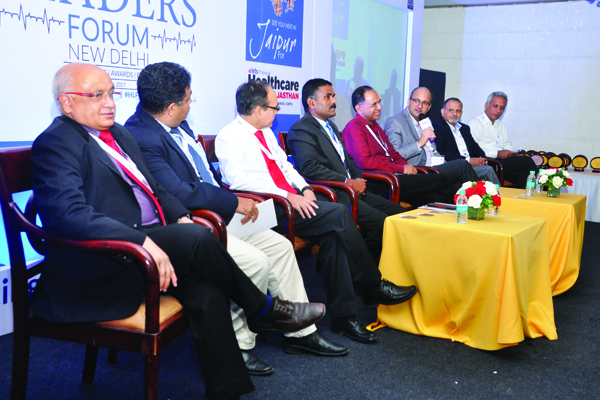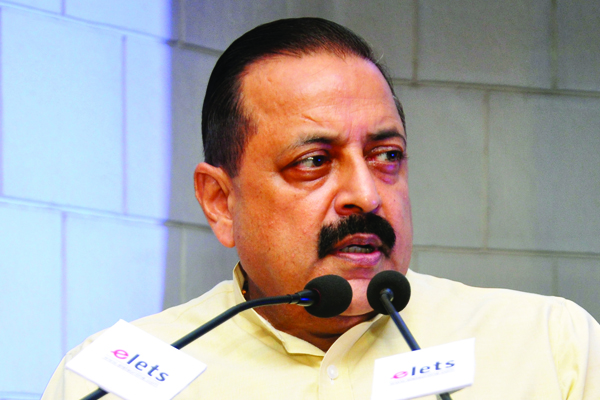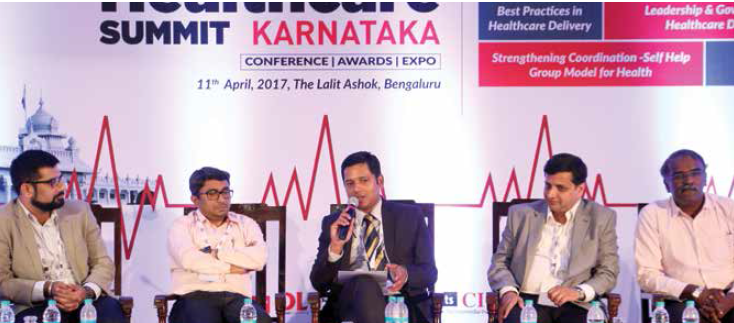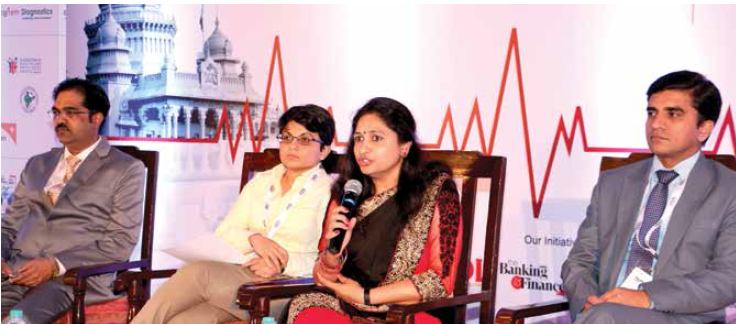
Conference Report
Plenary Session 1


Governance and leadership in health are crucial features of the countrys developmental goals and are intricately related to issues linked to fixing accountability and strengthening the healthcare delivery system. The session, Leadership and Governance in Healthcare Delivery, highlighted innovative ways to redress the limited institutional capacity in India, measures undertaken by the Government of Karnataka to fill delivery gaps and how leadership needs to align itself with changing paradigm.
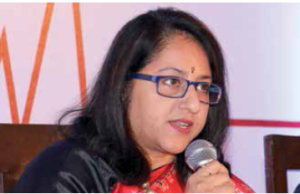 DR PRIYA BALASUBRAMANYAM KAKKAR
DR PRIYA BALASUBRAMANYAM KAKKAR
Senior Public Health Specialist, Scientist and Director
Public Health Foundation of India
Governance in health is being increasingly regarded as a salient theme on the development agenda. Leadership and governance in building a health system involve ensuring that strategic policy frameworks exist and are combined with effective oversight, coalition-building, regulation, attention to system design and accountability. The need for greater accountability arises both from increased funding and a growing demand to demonstrate results.

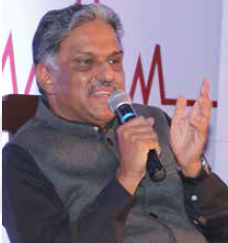 DR ALEXANDER THOMAS
DR ALEXANDER THOMAS
President
AHPI and ANBAI
Innovation is driving health sector in Karnataka. One of the innovations that the Government of Karnataka has undertaken is to run specialist courses for doctors in the State by the National Board of Examinations (NBE) to address the shortage of specialist doctors… The Board at present conducts postgraduate and postdoctoral examinations in 54 disciplines.
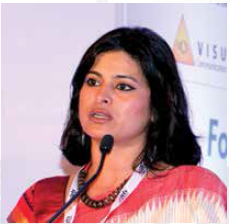 DR SHACHI ADYANTHYA
DR SHACHI ADYANTHYA
Senior Project Officer, Nati onal Health System
Strengthening, UNDP
The Ministry of Health and Family Welfare is currently rolling out an innovative electronic vaccine intelligence network called eVIN across 12 states in India. eVIN aims to support the Government of Indias Universal Immunisation Programme by providing real-time information on vaccine stocks and flows, and storage temperatures across all cold chain points in these states. The technological innovation is implemented by the UNDP with financial support from Gavi – The Vaccine Alliance.
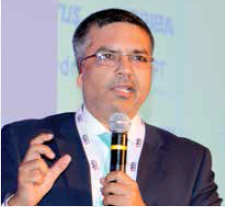 DR AJAY BAKSHI
DR AJAY BAKSHI
MD and CEO
Manipal Hospitals
How does healthcare delivery impact Governance? How do we build organisations and leaderships to manage new paradigm better? It is really matt er how do we use knowledge for the betterment of individual, community, society, etc. In my view, the modern sense of leadership listens and asks right questions.
 TL ALAMELU
TL ALAMELU
Director and General Manager
The New India Assurance Company Ltd
As part of innovation, the New India Assurance has introduced Cancer Medical Expense Policy. The idea behind introduction of the policy is to spread awareness for the prevention of the disease. This policy has helped the New India Assurance reaching a large number of people.
Key Takeaways
- Governance and leadership in health are linked to the need for greater accountability arising from increased funding and a growing demand to demonstrate results.
- One of the innovations that the Government of Karnataka has undertaken is to run specialist courses for doctors in the State by the National Board of Examinations (NBE) to address the shortage of specialist doctors.
- The Ministry of Health and Family Welfare is currently rolling out an innovative electronic vaccine intelligence network called eVIN across 12 states in India.
- eVIN aims to support the Government of Indias Universal Immunisation Programme by providing real-time information on vaccine stocks and flows, and storage temperatures across all cold chain points.
- eVIN has been rolled out in 371 districts of Assam, Bihar, Chhattisgarh, Gujarat, Himachal Pradesh, Jharkhand, Madhya Pradesh, Manipur, Nagaland, Odisha, Rajasthan and Uttar Pradesh.
- There are only 8 diagnostic labs per 100,000 people in India and 70 per cent of the diagnostic industry functions without pathologists, biochemists or microbiologists. This poses a challenge for ensuring quality services.
 DR CHARUSHEILA RAMKUMAR
DR CHARUSHEILA RAMKUMAR
OncoStem Diagnostics Ltd
OncoStems focus is on developing tests to identify patterns of recurrence in various cancers. While most cancer treatment is primarily geared toward preventing cancer recurrence, the knowledge of a patients risk of recurrence is critical in tailoring personalised therapeutic strategies.
 PROF KSHAMA HIREMATH
PROF KSHAMA HIREMATH
Director and Co-founder, Trident Diagnostics, Bangalore
Sixty to seventy per cent of medical conditions depend on diagnostic and laboratory tests. The Indian Laboratory and Diagnostic Market is touted to touch US$5.5 billion by 2020. Presently, approximately 100,000 diagnostic laboratories are functioning in India of which only 1% of the diagnostic labs are accredited.
Be a part of Elets Collaborative Initiatives. Join Us for Upcoming Events and explore business opportunities. Like us on Facebook , connect with us on LinkedIn and follow us on Twitter , Instagram.


